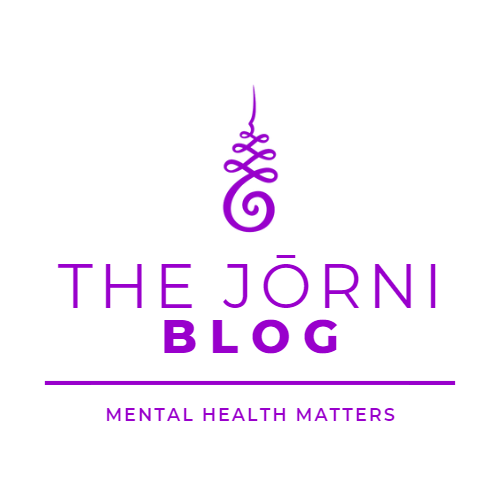Singing for Wellbeing
The Joy of Singing
Back in high school, I was a part of the school choir. I still remember the anxious and stressful feeling that I had when I went to rehearsal and we first sang in front of everyone. I used to be nervous, but as our voices became one, I felt relaxed and at peace. As time passed, I started having a lot of fun with it. We even went to Banff for a competition and from there, choir became more than just a credit I needed to graduate. Even now, I love to sing in the car or when I am by myself.
Back then, it was more of an entertaining experience. As I got older, I realized that singing and music in general could really affect my mood. I was surprised to notice how each part of my body resonated with the words and the melody.
This is where I started wondering if singing could actually affect my mental health and my mood.
I had the pleasure of interviewing Maggie Gelin on the podcast. Maggie is a vocal coach and currently lives in Belgium. She explained how singing together in a choir not only brings a sense of community and entertains people. But, it can also tell very personal stories and help people process traumas.
“If I cannot fly, let me sing.”
- Stephen Sondheim
Overall, singing can really affect mood and positively affect our mental health and wellbeing. I was intrigued to find out more.
Singing
Making sounds with your vocal cords and telling a powerful story through sung words is singing at the core. According to the growing research in this area, singing along with your favorite song or joining a local choir is very good for your physical and mental health. Several types of research have been done on the benefits of singing. Studies show that singing produces endorphins, increases immunity levels (Kreutz et al., 2004), and lowers stress hormones (Fancourt et al., 2015).

Also, if you are singing in a group, it induces positive group interactions, improves mutual support, and helps with relieving stress and depression (Shakespeare & Whieldon, 2017). According to Tamera Anderson-Hanna, a licensed mental health counselor, singing can be very significant for mental wellbeing and healing from any physical ailments as well. If you are recovering from substance abuse, coping with cancer, or dealing with any trauma, singing can help with your healing journey.
Daisy Press, a professional singer and vocal teacher in New York City, says that while singing, we dive straight into a conscious body experience that connects with our bodies immediately. Especially repetitive singing can help regulate the breath cycle and keeps us deeply oxygenated. According to her, singing is a great way to relax your mind as well as your body. There is no right or wrong way of singing and everyone can give it a try.
History of Singing
Vocal toning was already well-known to the ancient Egyptians, who recognized the amazing healing power of the voice. And in India, chanting was a part of the yogic practices. Legends, stories, events, and lore were passed on verbally throughout history, as most people could not write or read. Anything of importance was passed down the generations through song. In the middle ages, chanting became a common part of Christian religious practices. Outside of the church, bards continued to pass on culturally important information in songs and ballads.

As the European Renaissance began, simple chants evolved into complex song structures and harmonies. The wealthy population became more educated and songs also began to change. With time, opera was introduced to theaters. Music is still evolving with new styles appearing frequently. But, some things have remained constant. The idea that songs can tell a story to an audience, and the fact that the voice can be used for healing.
Using Singing for Healing
For millennia, it has been known that singing can bring healing to our mind and body. There is a wide range of ways you can use your voice for healing. Vocal toning or voice healing practices differ across cultures and religions and there is a lot of variety in what you can try.
For example, storytelling has phenomenal healing power because along with storytelling, you are using your expressions, different voice tones, imagination, and creativity. When you tell a story and share your own personal journey, it can bring deep and profound relaxation and healing. You may even enter a sort of trance.

Research has found that expressing your trauma in the form of storytelling can help you deal with that trauma. It is a sort of catharsis that helps you get your emotions out and leaves you feeling a lot lighter.
Chanting has been a very influential practice in many religions. It is a practice where a group of people repeats the same words with more depth each time. Chanting can also create a trance-like state and can help you connect with your inner self.
Yoga Mantras are also a great practice. Mantras are usually Sanskrit words that have special powers to connect mind, body, and soul. These words are usually chanted aloud or silently depending upon the setting and the specific practice. Many yoga mantras have been turned into beautiful songs.
Vocal Coaching
Vocal coaches not only help you find and tune your voice, they also help you connect your mind and body while singing. Singing can be a deeply personal experience and can bring out deep emotions. It is about how you connect to your voice and your breath. You may feel a great sense of release and peace. Or like a weight has been lifted off your shoulders.

As we already discussed, singing in community also has great benefits for your mental and emotional health. It builds up your confidence, helps you create a sense of belonging, and helps you build emotional resilience. With the help of a vocal coach, you can find your own personal way to connect to singing, whether you feel more comfortable alone or in a group.
The Takeaway
Speaking with Maggie definitely encouraged me to re-think singing. Many of us don’t sing because of a bad experience of someone who made fun of us. And many people believe they can’t sing. But, as Maggie reminded me, anyone who is not tone deaf can sing. Everyone deserves to sing and experience the amazing benefits it brings.

Singing can be such a healing and relaxing experience that you may find yourself wanting to sing more and more.
As the endorphins kick in and you float in that state of wellbeing, it could even feel like you are meditating. And if you are a little scared to sing by yourself, there are many choirs that come together simply for the joyful experience of singing. Community choirs, like Maggie’s choir, often do not have any requirements. You just need to enjoy singing to join.
Sing in the car or the shower. Perform for your loved one or an audience. Work with a vocal coach. Or join a choir. The choice is yours!
Sources
Kreutz, G., Bongard, S., Rohrmann, S., Hodapp, V., & Grebe, D. (2004). Effects of choir singing or listening on secretory Immunoglobulin A, cortisol, and emotional state. Journal of Behavioral Medicine, 27(6), 623–635. https://doi.org/10.1007/s10865-004-0006-9
Fancourt, D., Aufegger, L., & Williamon, A. (2015). Low-stress and high-stress singing have contrasting effects on glucocorticoid response. Frontiers in Psychology, 6. https://doi.org/10.3389/fpsyg.2015.01242
Shakespeare, T., & Whieldon, A. (2017). Sing your heart out: community singing as part of mental health recovery. Medical Humanities, 44(3), 153–157. https://doi.org/10.1136/medhum-2017-011195
https://thejornipodcast.com/episode-11-singing-for-joy-with-maggie-gelin

